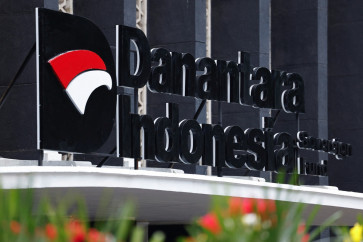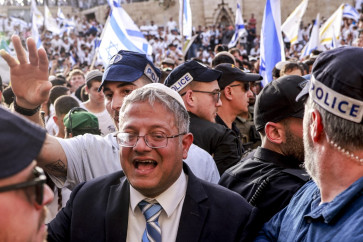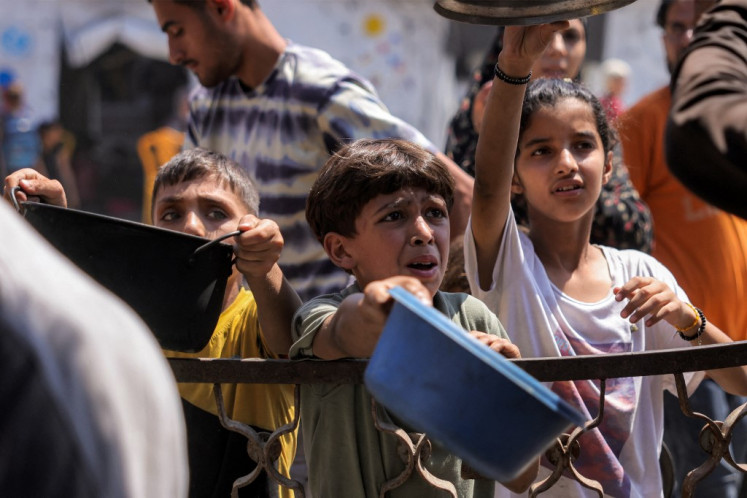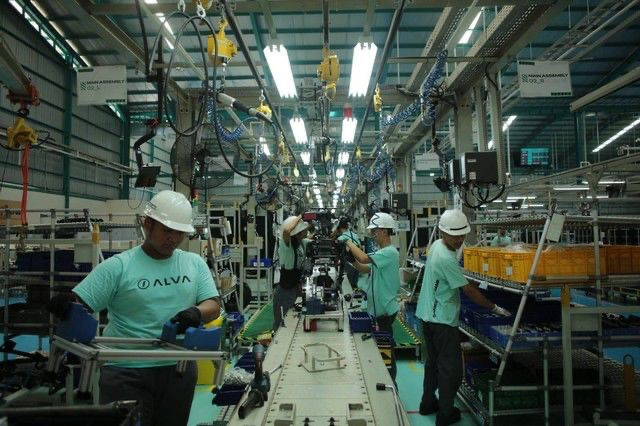Popular Reads
Top Results
Can't find what you're looking for?
View all search resultsPopular Reads
Top Results
Can't find what you're looking for?
View all search resultsSurin Pitsuwan: Working for the people of ASEAN
JP/Ricky YudhistiraIt was almost sundown when a convoy of cars arrived in the small, remote village of Daw Nyein in Myanmar’s Irrawaddy Delta region
Change text size
Gift Premium Articles
to Anyone
J
span class="caption" style="width: 398px;">JP/Ricky YudhistiraIt was almost sundown when a convoy of cars arrived in the small, remote village of Daw Nyein in Myanmar’s Irrawaddy Delta region.
Leading the convoy was ASEAN Secretary-General Surin Pitsuwan and his team from the ASEAN secretariat, traveling nonstop for more than 6 hours on long stretches of rugged dirt roads. It was not too long ago that these swatches of roads had been impassible as a result of the devastating Cyclone Nargis that struck Myanmar in May of 2008.
Waiting in eager anticipation was a group of wide-eyed tiny tots, decked in their local colorful costumes, accompanied by elderly villagers who lined the streets.
Against the rhythm of the drums and loud music that filled the air, one was overcome by the sight of hundreds of villagers patiently waiting and waving cheerfully as they welcomed some of the familiar faces who had been with them during the post-disaster relief operations in the Delta.
Surin was greeted with flowers and smiles as he proceeded to address the crowd, explaining why it was important for ASEAN to connect once again with the people of Myanmar after their traumatic experience with Cyclone Nargis. Above the deafening cheers of, ‘‘Cyclone, No More!” and “ASEAN, Yes Yes!”, Surin delivered a simple yet powerful message to the villagers in Daw Nyein that ASEAN stands behind Myanmar in its hour of need and in moments of hope. ASEAN, he says, is for all the people of ASEAN.
A colleague of mine called the trip a “joyous reunion of old friends”. Indeed it was — and much more. To the members of the ASEAN team who worked tirelessly in helping the victims of Cyclone Nargis, it was an emotional journey.
Being able to reconnect with the people who plucked the courage to rebuild their lives amid the unspeakable tragedy that hit them reinforced the belief that when there is a will, there is a way.
In a post-Charter ASEAN that envisions a caring and sharing society for Southeast Asia, one needs perseverance and a dose of faith to realize this goal.
It is the same dogged determination that has driven Surin to persist in finding a way to help Myanmar despite all the odds stacked against the initial efforts of the international community to assist the country at the height of the disaster.
Armed with the mandate from ASEAN leaders, Surin led the tri-partite relief operations comprising ASEAN, the UN and the government of Myanmar in his capacity as the ASEAN Humanitarian Assistance Coordinator.
Surin opened the space and paved the way for ASEAN to set up an office in the affected areas in the Delta so that humanitarian work, disaster relief and rehabilitation could be carried out.
It is this determination that has given the secretary-general the stamina to carry out numerous missions across Southeast Asia and beyond, bringing the message that ASEAN Matters.
These missions range from attending hundreds of ASEAN’s official meetings annually, including the ASEAN Summits and related meetings. Surin’s tightly packed schedule includes, among others, attending business forums and conferences and meetings organized by civil society groups.
There are also meetings and activities organized by youth, women’s groups, human rights advocates and the media. Invitations from academic institutions and think tanks flow from around the world — all wanting to hear about the developments in ASEAN and to get the thoughts of the man who has been ASEAN’s best messenger.
In the last four years since assuming his post as the secretary-general of ASEAN, Surin’s boundless energy has helped tremendously in spreading the work of ASEAN within and beyond the region.
To Surin, his call of duty goes beyond the daily tasks of running the ASEAN secretariat. It is also about making ASEAN matter to the lives of the people in the region — regardless of race, gender and status. It is also this burning mission that adds the spring in his step as he travels, tirelessly promoting ASEAN.
Surin has taken it upon himself to advance the leader’s decision to make ASEAN a people-centered organization.
He not only spreads the message about ASEAN to its people, but also makes them appreciate that ASEAN can indeed make a difference in their lives. The mission to reconnect with communities in the disaster-stricken region of Myanmar’s Irrawaddy Delta is yet another example of his mission.
Surin was once Thailand’s foreign minister and a politician. He is also a scholar and a thinker. While often found in the company of ministers and leaders around the world, he also appreciates being and conversing with students, NGOs and people from all walks of life.
Thus, while he takes the international stage and waxes lyrical about international affairs, assiduously promotes regionalism and strongly advocates multilateral cooperation to address global challenges and human security issues — he is also found joining rickshaw rallies, bicycle runs, cultural events and art competitions.
As secretary-general of ASEAN, it is (often) the boldness of his views and ideas that he conveys which often get the attention of people who follow the regional group.
When Surin was foreign minister of Thailand at the height of the Asian Financial Crisis in 1998, he introduced the notion of flexible engagement — urging his ASEAN counterparts to candidly discuss issues of common concern rather than “sweep problems under the carpet”. Discomfited by his idea at that time, some of his regional counterparts had called him — “the new kid on the block”.
Fourteen-years on, as ASEAN’s secretary-general, Surin is no less bold than he was before, always pushing the envelope whenever he could.
As we watch the next 10 months until the end of his term, it won’t be a surprise to see Surin still blazing his way across the region, and maybe even leading a team again back to the road less traveled.










